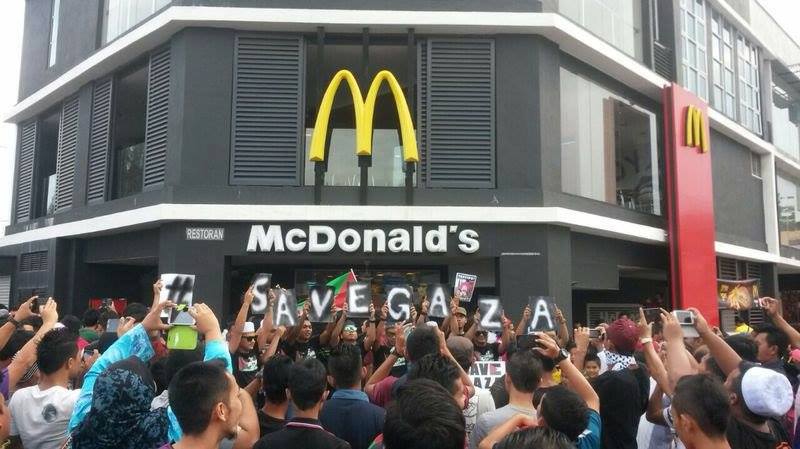Indonesians boycott McDonald's and Starbucks for supporting Israel
The Ulema Council has called for a boycott of the purchase of 121 products - mainly food and beverages, but also health products - that it believes are 'linked' to Israel directly or indirectly. The initiative follows McDonald's Israel's announcement that it has donated free meals to the Israeli army.
Jakarta (AsiaNews) - Exploiting its "moral power" the Indonesian Ulema Council (MUI, or "Majelis Ulama Indonesia" as they are called locally) has asked to boycott the purchase and consumption of 121 food and drink products that believes they are linked to Israel, either directly or indirectly through the United States.
Among the products or commercial entities to be boycotted there are also several fast food chains such as McDonald's, KFC, Pizza Hut, Burger King, Starbucks, Subway, or giants of the food industry such as Lays, Pringles, Kitkat, Magnum and CocaCola. But MUI also lists cosmetic products and household cleaning materials as "haram" (morally illicit).
At the origin of the boycott for the Indonesian fundamentalist group is the declaration of McDonald's Israel to donate free meals to the Israeli army. At the moment, however, only a small part of Indonesians support this boycott.
Most Indonesians have a distorted perspective on the Israeli-Palestinian conflict as many believe that it can be reduced to a conflict between religions. This is why large sections of Indonesian society were easily convinced to accuse Israel of "pogroms" against the Palestinians, who are Muslim - like the majority of the population of the South-East Asian country. And although this perspective on a geopolitical and social level is not only simplistic, but also "wrong", the majority of Indonesians are becoming "targets" of anti-Israel campaigns and against its population.
At the root of this phenomenon are groups of intransigent Indonesian Muslims such as the Ulema Council, which has already been the protagonist of controversial initiatives in the past, and which today aims to boycott Israel by asking for a block on the consumption of products it deems linked to the Jewish state , labeling them as “haram”.
Although the Indonesian government of Joko Widodo officially revoked in 2022 the MUI's authority over the labeling of what is or is not "haram", which is now in the hands of a special agency of the Ministry of Religious Affairs, the MUI - founded in 1975 by the then Indonesian leader Suharto - continues to exert a strong influence on the population.
Speaking with his American counterpart Joe Biden, Indonesian President Joko Widodo nevertheless urged the White House to put more pressure on Netanyahu's government to open more "corridors" for humanitarian missions: "The ceasefire is the first goal to be achieved to facilitate this type of operation,” Jokowi told Biden during their face-to-face meeting.
07/02/2019 17:28







.png)










